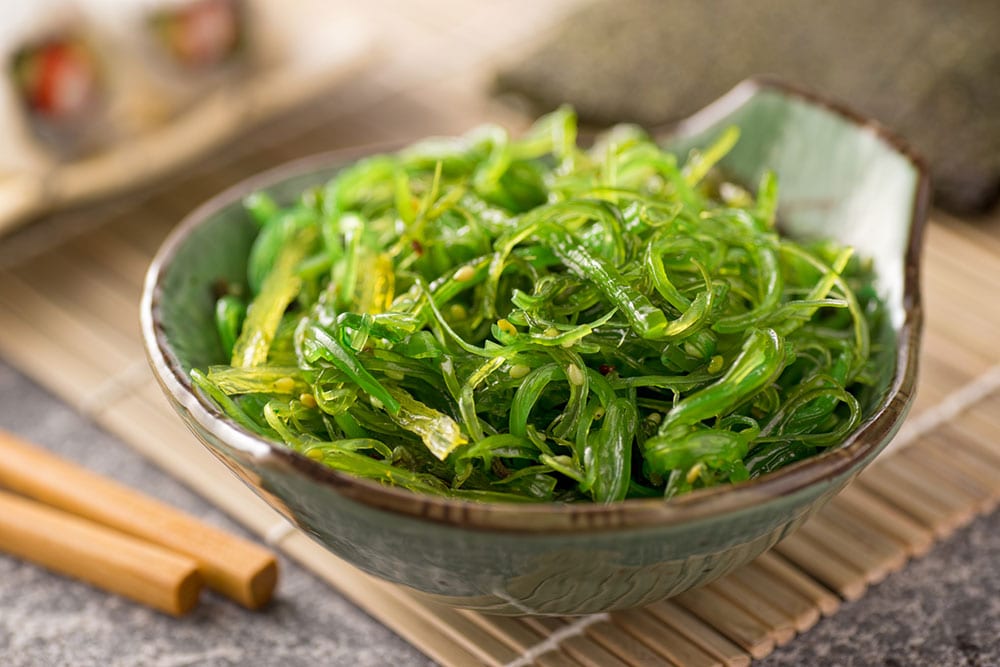Full of nutrients
Seaweed offers a wide spectrum of vitamins and minerals. While being a good supply of protein and fibre, it also contains rich amounts of calcium, copper, iodine and iron. It’s a source of vitamins including Vitamin K and folic acid. Seaweed’s antioxidants may protect from oxidative stress and reduce cellular inflammation.
Low in kilojoules
Seaweed is a great low kilojoule option to fill you up and keep you satisfied. Its ability to affect your levels of weight regulating hormone leptin, combined with its high fibre content, may help decrease hunger and enhance feelings of fullness.
May promote thyroid function
Most varieties of seaweed are a source of iodine. Your thyroid requires a good intake of iodine to function properly. But take note – some varieties such as kelp, kombu and dulse contain very high amounts of iodine and should not be eaten in high amounts or frequently. Other types such as spirulina contain very little, so shouldn’t be relied upon as your only source of iodine.
May improve heart health
The high fibre content of seaweed may reduce levels of cholesterol in the blood, and its antioxidants could also support heart health over time.
Supports gut health
Again, the large amounts of fibre in seaweed can help to feed the gut’s bacteria and improve its health, as well as that of the immune system.







